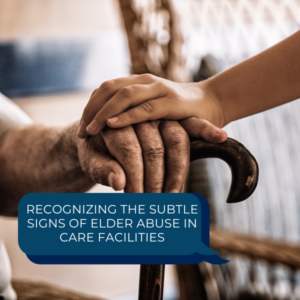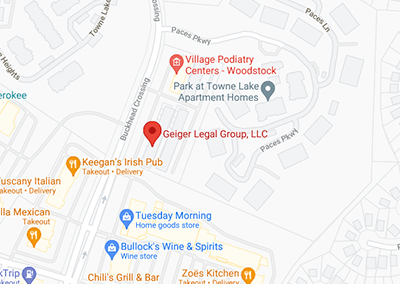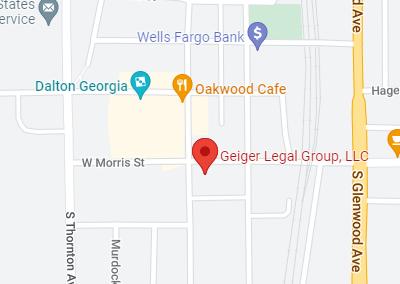Recognizing the Subtle Signs of Elder Abuse in Care Facilities

When families place older loved ones in nursing homes, they trust that those facilities will treat their loved ones with the dignity and respect they deserve. Unfortunately, far too many residents become victims of elder abuse. Recognizing the telltale signs can help protect your loved ones’ health and rights.
What Is Elder Abuse or Elder Neglect?
Elder abuse occurs when someone charged with caring for an older, vulnerable adult engages in actions or omissions that harm or negatively affect the physical, emotional, and financial well-being of that older adult. This form of abuse is worryingly common at nursing facilities.
Subtle Signs of Physical and Emotional Abuse
What are the signs of elder abuse?
Family members should familiarize themselves with the more subtle signs of elder abuse so they can intervene and protect their loved ones before it’s too late. If left unchecked, nursing home abuse can have tragic, even fatal consequences. Elder abuse signs that physical abuse is occurring in a nursing home include:
- Unexplained physical trauma, such as lacerations, bruises, dislocated joints, or broken bones
- Untreated injuries or multiple injuries in various states of healing
- Marks from restraining devices
- Overmedication or unnecessary sedation
- Broken eyeglasses or damaged/torn clothing
- New sexually transmitted infections
- Sudden changes in an older person’s behavior, including withdrawal, depression, or severe anxiety
- Caregivers refusing to allow family members or friends access to an older person
Older adults may also become the victim of emotional elder abuse, which can involve yelling or swearing at an older person or insulting, belittling, or threatening them, or otherwise inflicting psychological abuse. Some warning signs of ongoing emotional abuse of an elder family member include:
- The older adult becomes emotionally agitated
- Withdrawal or non-communication
- Soothing behaviors like rocking, mumbling, or thumb-sucking
- Changes in sleeping patterns or eating habits
- Unusual changes in personality, such as excessive apologizing
- Poor personal hygiene
- Depression or anxiety
Recognizing Financial Abuse and Exploitation
Elder abuse may also take the form of financial exploitation, where a caregiver abuses their position of trust or authority to misappropriate an older person’s property and money. Signs that an elderly person may have been the target of financial abuse include:
- Property, valuables, or cash going missing from the older person’s room or residence
- Unexplained or unauthorized transactions in an older person’s bank account or credit card
- Changes to the older person’s financial accounts, including adding authorized users to accounts or cards or changes to beneficiary or pay/transfer-on-death designations
- Unpaid bills
- Unexplained transfers of assets
- Sudden changes to a will or other estate planning documents
- Billing for fictitious or unnecessary services
What to Do if You Suspect Elder Abuse
If you suspect that a loved one has suffered elder abuse, whether it be physical abuse, emotional abuse, sexual abuse, or financial abuse, you can protect them by reporting your suspicions to the authorities. You can also file reports with the Georgia State Long-Term Care Ombudsman and the Georgia Department of Health. Finally, talk to an elder abuse attorney about your family’s options for seeking financial compensation and justice for your loved one.
Contact our Georgia Elder Abuse Attorneys Today
If you believe a loved one may have become the victim of elder abuse, turn to an experienced nursing home abuse and neglect attorney for help protecting their legal rights and safety. Contact Geiger Legal Group, LLC, today for a free, no-obligation consultation to discuss your family’s options.














